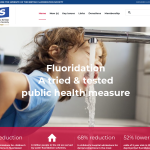Humans have always been naturally social beings. We survive and thrive on connecting with others, which is why the effects of the COVID-19 crisis on our ability to socialise have felt all the more profound. Isolation and loneliness were prevalent within the population prior to the pandemic, but efforts to reduce the spread of the virus through quarantine measures, stay-at-home restrictions and social distancing guidelines have only seemed to exacerbate an already serious problem.
The pandemic has even limited physical proximity between family members from different households. For the 7.7 million people in the UK living alone – many of whom rely on visiting relatives for social interactions – this has meant little to no human contact for weeks or months. It’s no wonder that many people are feeling more isolated than ever before, with around 2.6 million UK adults having reported that they often or always felt lonely during the peak of the pandemic at the beginning of April and that of May.[1]
Effects on health and wellbeing
There is substantial evidence that poor social interaction can have a serious effect on general health and wellbeing, increasing the likelihood of mortality by a worrying 26%.[2] In fact, according to one review, the effect of social isolation and loneliness on mortality is comparable to the impact of well-known risk factors such as obesity, and has a similar influence on overall health as cigarette smoking.[3] Furthermore, loneliness is associated with a greater risk of conditions such as hypertension, coronary heart disease and stroke.[4], [5]
Prolonged feelings of loneliness can also increase an individual’s chances of developing mental health problems, including depression, anxiety, stress, cognitive decline and dementia.[6], [7], [8] This can lead to the adoption of harmful coping mechanisms such as excess alcohol consumption, substance abuse and overeating.[9] Social isolation can simply become an overwhelming burden for some people, which is why it is related to a higher likelihood of suicidal behaviour.[10]
A spotlight on dentistry
Given that poor mental health is a well-known issue in dentistry, it is worrying to think that many dental professionals could be experiencing an unprecedented level of isolation and loneliness due to COVID-19 working conditions. Clinicians are ultimately confined to a sterile clinical setting for most of their working day, with increased pressure to provide timely and effective patient care on top of completing day-to-day administrative tasks. The current litigious climate only adds to the stress and anxiety that some clinicians may be feeling.
Dental teams can take steps to reduce feelings of isolation and loneliness by adapting how they connect with each other and finding new ways to stay in touch during this challenging time. For instance, access to in-person educational events may be limited right now, but dental professionals can still take part in online courses – not just for the learning opportunities, but also for the chance to interact with colleagues in a more relaxed and informal manner.
Now, more than ever, is the time to maintain strong social networks that can act as a buffer against poor mental health. One of the greatest benefits of joining a progressive organisation like the British Society of Dental Hygiene and Therapy (BSDHT) is that you become part of a welcoming and inclusive community of professionals. The BSDHT understands how isolating being a dental hygienist or dental therapist can be, which is why it offers an outstanding platform of support whenever members need advice, guidance or encouragement.
The COVID-19 pandemic continues to challenge every aspect of our lives. What’s inspiring is that people remain resilient and within dentistry, in particular, individuals have continued coming together to lend a helping hand to those who are struggling, which will ultimately support the profession in moving forwards from the crisis. Remember, in a world where you can be anything, be kind.
For more information about the BSDHT, please visit www.bsdht.org.uk, call 01788 575050 or email enquiries@bsdht.org.uk
DIANE ROCHFORD – President BSDHT
CEB DIP DENT HYGIENE 1996, BSC (HONS) 2016
DENTAL HYGIENIST
[1] Office for National Statistics. (2020) Coronavirus and loneliness, Great Britain: 3 April to 3 May 2020. Available at: https://www.ons.gov.uk/peoplepopulationandcommunity/wellbeing/bulletins/coronavirusandlonelinessgreatbritain/3aprilto3may2020#how-has-the-coronavirus-impacted-people-living-with-loneliness. [Last accessed: 26.10.20].
[2] Holt-Lunstad, J., Smith, T. B., Baker, M., Harris, T. and Stephenson, D. (2015) Loneliness and social isolation as risk factors for mortality: a meta-analytic review. Perspective on Psychological Science. 10(2): 227–37. DOI: 10.1177/1745691614568352.
[3] Holt-Lunstad, J., Smith, T. B. and Layton, J. B. (2010) Social Relationships and Mortality Risk: A Meta-analytic Review. PLoS Medicine. 7(7): e1000316. DOI: 10.1371/journal.pmed.1000316.
[4] Hawkley, L C., Thisted, R. A., Masi, C. M. and Cacioppo, J. T. (2010) Loneliness predicts increased blood pressure: 5-year cross-lagged analyses in middle-aged and older adults. Psychology and Aging. 25(1): 132–41. DOI: 10.1037/a0017805.
[5] Valtorta, N. K., Kanaan, M., Gilbody, S., Ronzi, S. and Hanratty, B. (2016) Loneliness and social isolation as risk factors for coronary heart disease and stroke: systemic review and meta-analysis of longitudinal observational studies. Heart. 102(13): 1009–1016. DOI: 10.1136/heartjnl-2015-308790.
[6] Mental Health Foundation. (2020) Loneliness during coronavirus. Available at: https://www.mentalhealth.org.uk/coronavirus/loneliness-during-coronavirus. [Last accessed: 26.10.20].
[7] Mushtaq, R., Shoib, S., Shah, T. and Mushtaq, S. (2014) Relationship between loneliness, psychiatric disorders and physical health ? A review on the psychological aspects of loneliness. J Clin Diagn Res. 8(9): WE01–WE4. DOI: 10.7860/JCDR/2014/10077.4828.
[8] Cacioppo, J. T. and Cacioppo, S. (2013) Older adults reporting social isolation or loneliness show poorer cognitive function 4 years later. Evidence-based Nursing. 17(2): 59–60. DOI: 1-.1136/eb-2013-101379.
[9] Mental Health Foundation. (2020) Resilience across the UK during the coronavirus pandemic. Available at: https://www.mentalhealth.org.uk/coronavirus/resilience-across-uk-coronavirus-pandemic. [Last accessed: 26.10.20].
[10] World Health Organization. (2019) Suicide. Available at: https://www.who.int/en/news-room/fact-sheets/detail/suicide. [Last accessed: 26.10.20].











